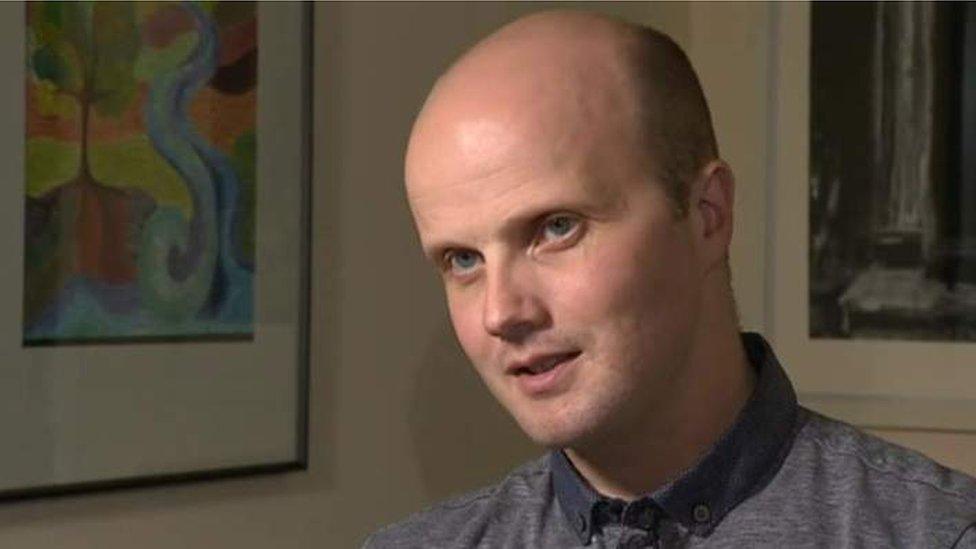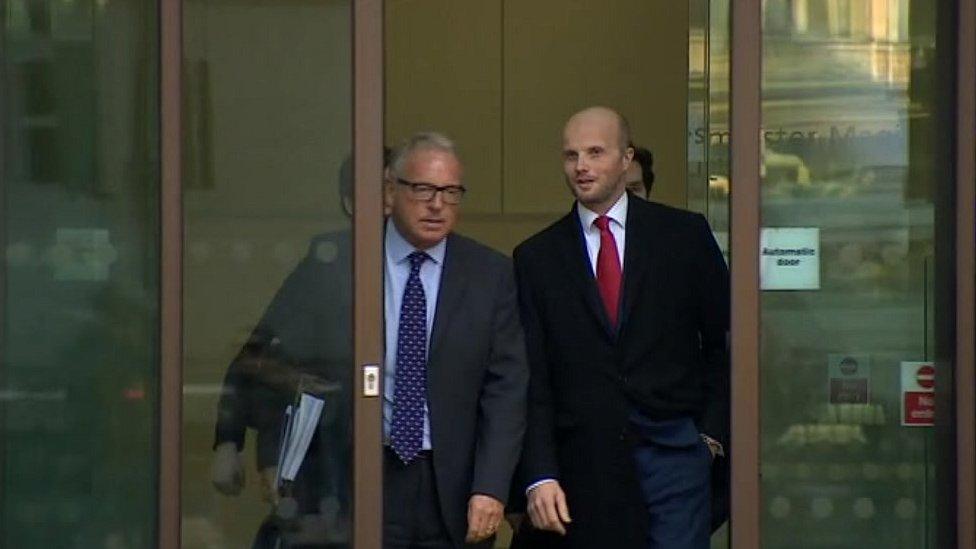Ex-police commissioner Adam Simmonds 'broke laws to aid Tories'
- Published

Adam Simmonds is on trial at Southwark Crown Court
A former police commissioner broke data protection laws by sharing details about an ongoing case with Conservative colleagues, a court has heard.
Adam Simmonds, 40, denies recklessly passing on details of a fraud probe involving Wellingborough MP Peter Bone.
The former Northamptonshire police and crime commissioner (PCC) is on trial at Southwark Crown Court.
The prosecution claimed he used the information to "aid the Conservative Party".
The court heard Mr Simmonds, of Northcote Road in Leicester, had conversations with Northamptonshire MPs Michael Ellis and Christopher Heaton-Harris about an investigation into fellow Conservative Mr Bone.
Christopher Foulkes, prosecuting, said Mr Simmonds had also spoken to former Wellingborough Borough Council leader Paul Bell and the then Northampton Borough Council leader David Mackintosh about the case.
The alleged offence is said to have taken place between November 2013 and May 2014.
'Political hat'
Mr Simmonds, the court heard, was copied in on a number of emails from police officers investigating Mr Bone.
Mr Bone was being investigated over claims he was engaged in fraud involving the care of an elderly relative.

Northamptonshire's former police and crime commissioner Adam Simmonds (right) denies breaching data protection laws
The case against Mr Bone and his wife, Jeanette, was dropped however by the Crown Prosecution Service in 2014.
Mr Foulkes told the court that during one conversation, with Paul Bell, Mr Simmonds had discussed "what would happen in the [Conservative] party should Mr Bone be prosecuted".
He said Mr Simmonds had asked Mr Bell if he would consider standing as MP for Wellingborough if that were to happen.
'Gossip conversation'
Mr Foulkes also told the jury about a conversation between Mr Simmonds and Mr Mackintosh.
Mr Mackintosh, who was then leader of Northampton Borough Council and who later became an MP himself, called it a "gossip conversation".
Mr Foulkes said Mr Simmonds had later told the Independent Police Complaints Commission he had been "wearing his political hat rather than his PCC hat" during the discussions.
Mark Harries, representing Mr Simmonds, said there was no dispute his client had received the emails or that the conversations had taken place.
He asked the jury to consider whether the disclosures had been made to "a wide and random selection of people or limited to trusted individuals".
The case continues.